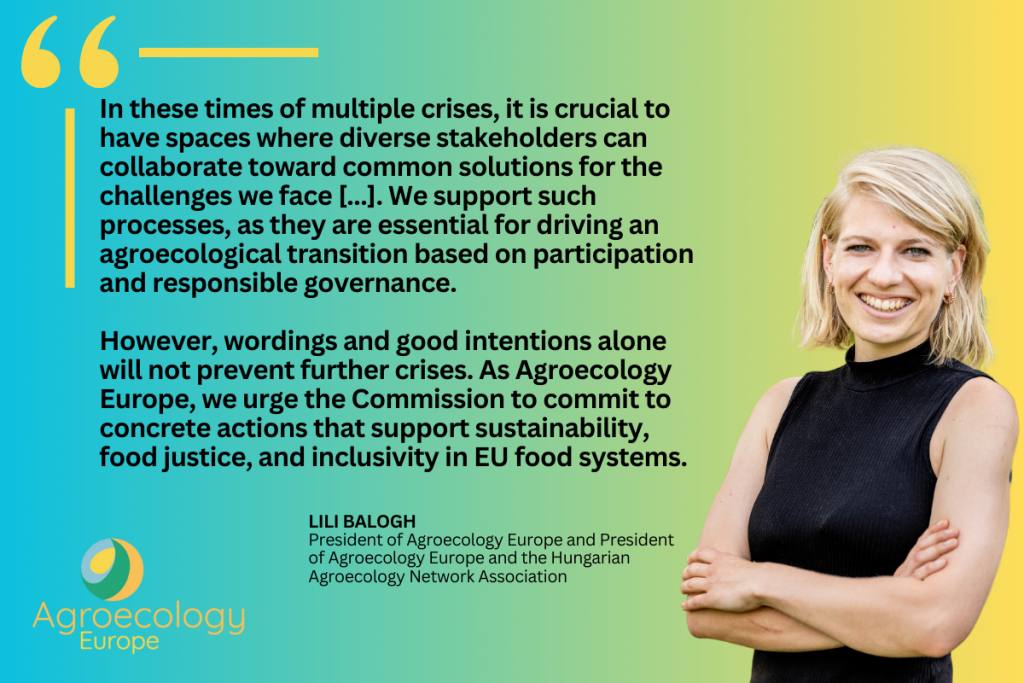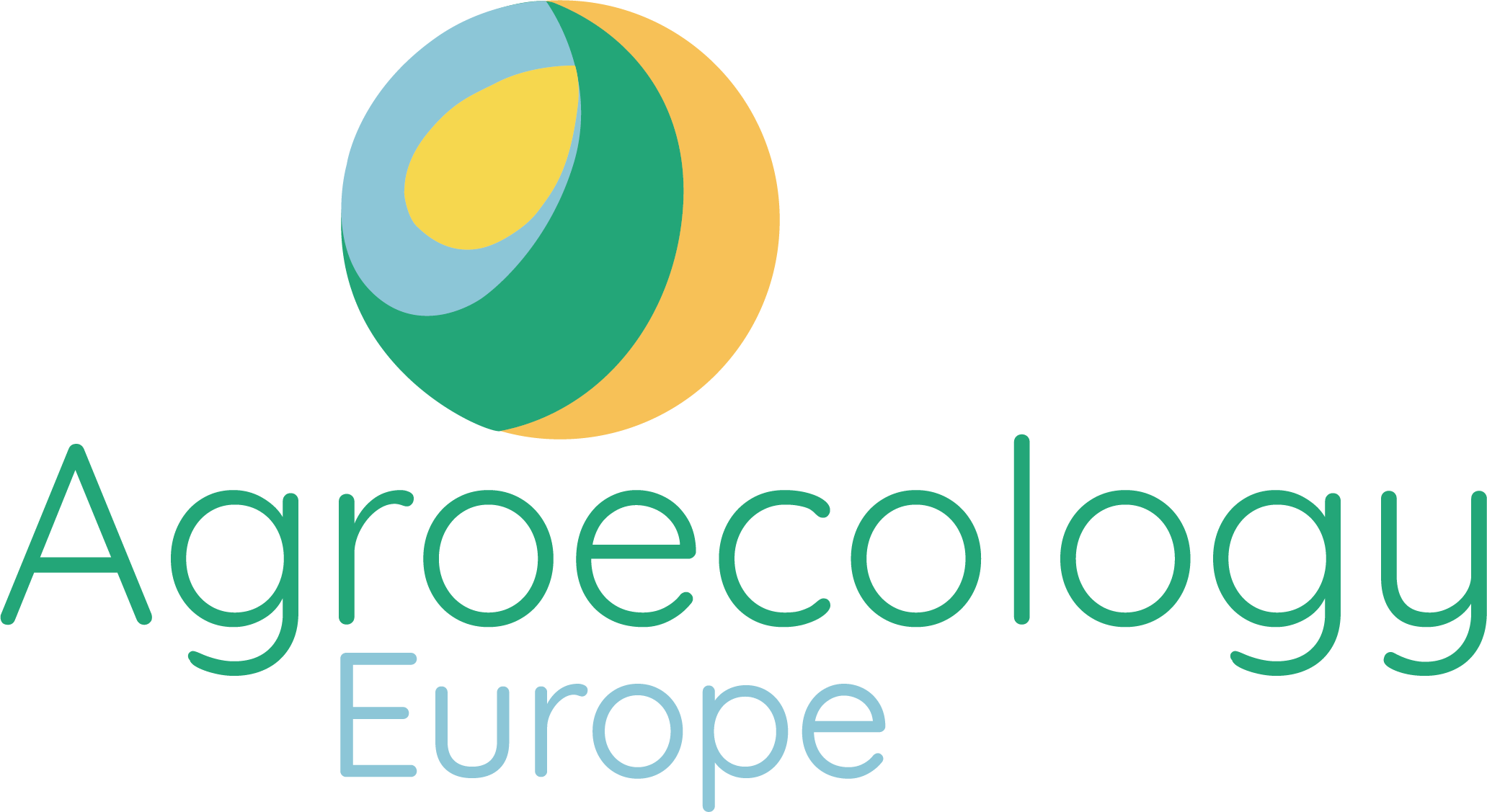Brussels, Wednesday 4 September 2024
The Strategic Dialogue on the Future of Agriculture, announced by Von der Leyen in her 2023 State of the Union Address, came to a close after 7 months of intense discussions between stakeholders of the European food system.
Marta Messa, Slow Food Secretary General, and Lili Balogh, President of Agroecology Europe and the Hungarian Agroecology Network Association, participated together with 27 other food sector representatives, in a dialogue that stood in stark contrast with the usual advisory groups of the European Commission: instead of being a space where stakeholders voiced their positions (often opposite positions), it was a space where stakeholders listened to each other and worked together through their respective positions, striving to find consensus that would push up the bar of European food systems towards greater sustainability through its integrity.
Marta Messa comments: “We have welcomed this space for real dialogue. Of course, it was challenging, and it took intense discussions and careful rewording. But ultimately this report gives some constructive key recommendations for greater ambition. As a global food movement involving across the food systems, we welcome the food system approach of the whole report and the recommendations therein. Now we look forward to seeing the recommendations reflected in the Vision for Agriculture and Food by President Von der Leyen”.

Slow Food and Agroecology Europe point to the following key takeaways from the report of the Strategic Dialogue:
- Adopting a food systems approach, everyone has a role to play.
- Enhancing sustainable farming practices: The Strategic Dialogue proposes recommendations to promote agrobiodiversity, improve nutrient management, advance in the decarbonization of mineral fertilizers as well as develop and use biocontrol, while calling on the European Commission and Member States to continue to support organic production as well as agroecological practices.
- Creating pathways for sustainable animal farming in the EU: while developing a strategy on the role of animal farming based on robust scientific evidence and broad consultation, long-term solutions need to be locally developed and funded in areas of high concentration of livestock, and a revision of the animal welfare legislation is needed.
- Preparing a Common Agricultural Policy (CAP) fit for purpose: The CAP needs to be revised in favor of more targeted income support, targeting small and mixed farms, promoting environmental, social and animal welfare outcomes, aiming at the highest ambition in a system to be linked to quantifiable results using robust indicators
- Financing the transition: To ensure a sufficiently funded transition, both public and private capital needs to be mobilized. A Temporary Just Transition Fund should be established outside the CAP to complement support for the sector’s swift sustainability transition.
- Building an attractive and diverse sector: Generational renewal in the agri-food sectors needs to be boosted, while gender inequalities and lacking diversity in the sector need to be better addressed.
- Making the healthy and sustainable choice the easy one: The European Commission and Member States should adopt demand-side policies to create enabling food environments where balanced, sustainable, healthy diets are available, accessible, affordable, and attractive. To improve the sustainable balance between animal and plant-based protein intake at the European population level, it is crucial to support this trend by re-balancing towards plant-based options and helping consumers to embrace the transition
- Promoting sustainability and competitiveness in trade policy: by ensuring greater coherence between its trade and sustainability policy.
Lili Balogh underlines: “In these times of multiple crises, it is crucial to have spaces where diverse stakeholders can collaborate toward common solutions for the challenges we face, including climate change, biodiversity loss, the decline of the farming population, and the need to dignify the farming profession. We support such processes, as they are essential for driving an agroecological transition based on participation and responsible governance. However, wordings and good intentions alone will not prevent further crises. The European Commission must fully embrace its political role, while other stakeholders must remain committed to their engagements. Clear political guidelines and targets are essential to ensure all parties are aligned in transforming our food systems. This process must lead to compliance with the Green Deal objectives, which were unmet under the last European Commission mandate, and go even further. As Agroecology Europe, we urge the Commission to commit to concrete actions that support sustainability, food justice, and inclusivity in EU food systems.

Slow Food and Agroecology Europe will continue to collaborate with the Strategic Dialogue participants, allies within the EU Food Policy Coalition, partner organizations across Europe and the EU Commission to follow up on the recommendations included in the report for concrete change in Europe.
For More Information
